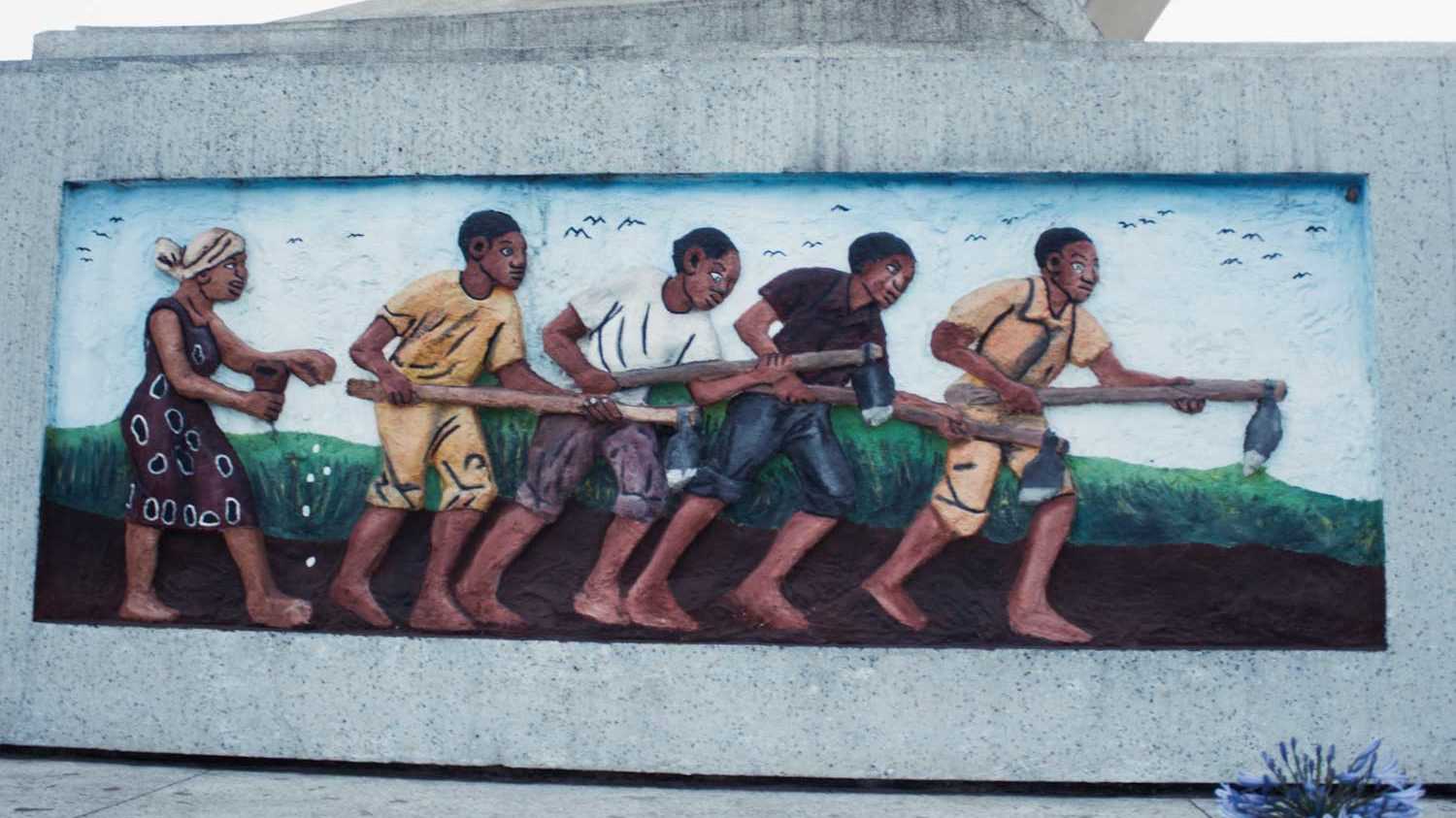The Arusha Declaration Monument was unveiled in 1977 and immediately became a city landmark, tourist attraction and proof that Tanzanians decided to follow a path they believed in.
Tanzania’s post-independence history had been highly influenced by world politics.
It was a time when tensions were high and superpowers were locking horns with each other (It’s crazy how nothing has changed in 2022!) but we found our path, regardless.

What path was that?
In 1967, President Nyerere published his development blueprint, the Arusha Declaration.
He pointed out the need for an African model of development, and that formed the basis of the Ujamaa ideology as a national political-economic policy.

What is Ujamaa?
The Swahili word ujamaa means ‘extended family’: It simply means that a person becomes a person through the people in the community.
The spirit of ‘community’ bringing units of families together, and fostering cohesion, love, and service was the holy grail of Ujamaa.
Each of the four pillars of the Arusha Declaration Monument is decorated with murals depicting the values of the Ujamaa Policy irrespectively and in no particular order, for your eyes 👀
EQUALITY

All human beings are equal.
DIGNITY

Every individual has a right to dignity and respect.
TEAMWORK

Every citizen is an integral part of the Nation and has a right to take an equal part in Government at local, regional and national levels.
PROTECTION

Every individual has a right to receive from society protection of his life and property according to the law.
FREEDOM

Every citizen has a right to freedom of expression, movement, religious belief and association within the context of the law.
LABOUR

Every citizen has a right to receive a just return for his labour.
COMMUNAL OWNERSHIP

All citizens together possess all the natural resources of the country in trust for their descendants.
STATE CONTROL

To ensure economic justice the State must have effective control over the principal means of production.
STATE RESPONSIBILITY

It is the responsibility of the State to intervene actively in the economic life of the Nation to ensure the well being of all citizens and prevent the exploitation of one person by another or one group by another and prevent the accumulation of wealth to an extent which is inconsistent with a classless society.

The Arusha Declaration was a moment that led to a monument. It was a moment of realization succeeded by events that saw Tanzania declare to the world its newfound ideology called Ujamaa.
How relevant is the Ujamaa ideology in 2022? The state still controls the energy and water sectors.
Would it be a good idea to let private investors into those key sectors? 100% with close government regulation and supervision.


